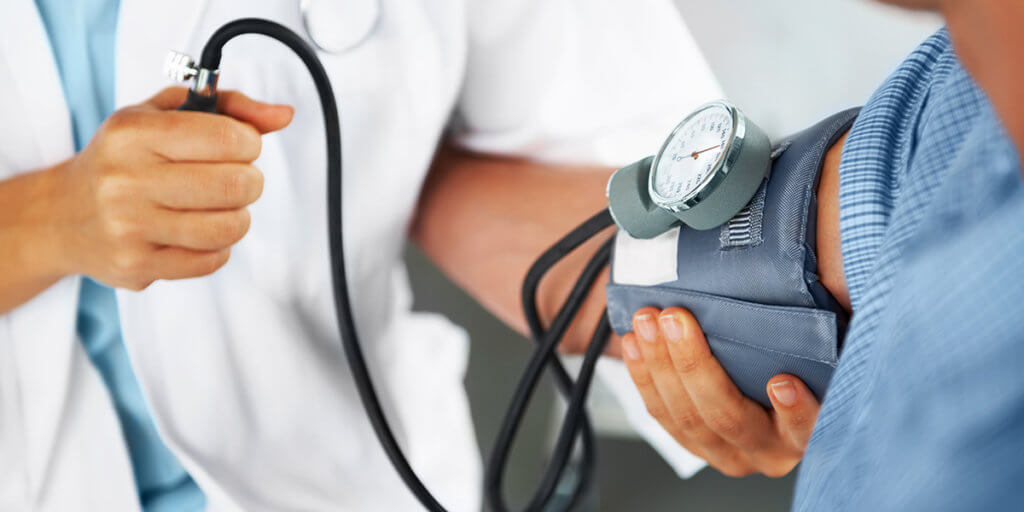
Blood pressure is the force of your blood pushing against the walls of your blood vessels. High blood pressure, also called hypertension, happens when the force is consistently too high. The excessive pressure on your artery walls can do damage to your blood vessels, along with the organs in your body. The higher your blood pressure and the longer it goes untreated, the more damage it does. Untreated high blood pressure can lead to more serious health concerns, like a heart attack or stroke, aneurysms, heart failure, weakened and narrowed blood vessels in your kidneys, thick, narrowed or torn blood vessels in the eyes, metabolic syndrome, dementia, and trouble with memory or understanding.
Hypertension is often called the “silent killer” because it has no clear or obvious symptoms that indicate something is wrong. In fact, many people with high blood pressure don’t even know they have it. High blood pressure develops slowly over time and can be related to many symptoms, like blood spots in the eyes, facial flushing, and dizziness.
Unfortunately, high blood pressure can’t be cured, but it can be managed through lifestyle changes and/or medication, if needed. Lifestyle plays a crucial role in treating or managing high blood pressure. With a healthy lifestyle, you can potentially avoid, delay, or reduce the need for medications. Your primary care practitioner plays a crucial role in helping you manage your hypertension by developing a personalized plan that fits your needs. They can also make specific recommendations on which lifestyle changes you should make. However, almost anyone can benefit from the following lifestyle changes.
Lifestyle Changes
There are several lifestyle changes you can make to lower your blood pressure and keep it down, including:
- Exercising regularly – Regular exercise can help lower your blood pressure. Make sure you're consistent with your physical activity, because if you stop exercising, your blood pressure can rise again. Some simple ways to get active could include walking, jogging, cycling, or swimming.
- Creating (and stick to) a healthy diet – Create a menu that is full of whole grains, fruits, vegetables, and low-fat dairy products to help lower high blood pressure. This type of diet is known as the Dietary Approaches to Stop Hypertension (DASH) diet.
- Relieving your stress – Chronic stress can play a factor in high blood pressure, especially if it causes unhealthy eating, alcohol consumption, or smoking.
- Quitting smoking – Each cigarette you smoke increases your blood pressure for several minutes after you finish. Quitting smoking can also help reduce your risk of heart disease and improve your overall health.
If you have been diagnosed with high blood pressure, it is important that you make the necessary lifestyle changes to help lower your blood pressure. If left untreated, it could lead to more serious health concerns. The first step towards controlling your high blood pressure is to speak with your primary care provider. At Community Care Physicians, we have practitioners conveniently located throughout the Capital Region who are well-equipped to handle your blood pressure concerns. If you need assistance finding the right care for you, call our Concierge Care Coordinator at (518) 782-3800, who would be more than happy to assist you!
Sources
https://www.heart.org/en/health-topics/high-blood-pressure/the-facts-about-high-blood-pressure/what-is-high-blood-pressure
https://www.heart.org/en/health-topics/high-blood-pressure/why-high-blood-pressure-is-a-silent-killer/what-are-the-symptoms-of-high-blood-pressure
https://www.mayoclinic.org/diseases-conditions/high-blood-pressure/in-depth/high-blood-pressure/art-20046974
